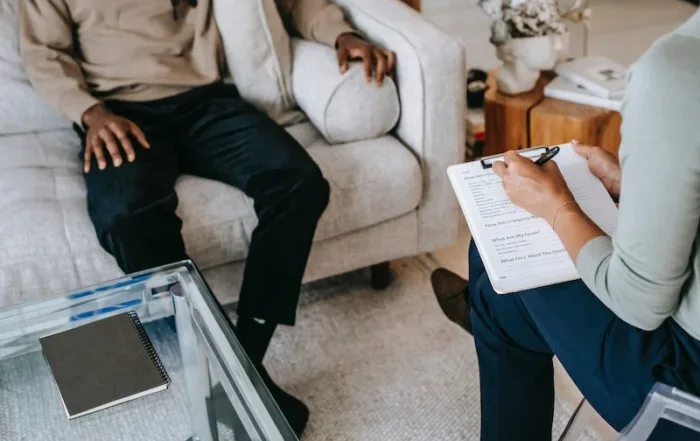
Creating positive daily habits is one of the most powerful ways to change your life. The things you do every day, no matter how small, slowly shape your health, mindset, productivity, and even your happiness. While motivation can get you started, it’s habits that keep you going.
But here’s the challenge: building new habits is not always easy. Many people start strong but quit halfway because they expect instant results. The truth is, habits grow like seeds—you need patience, consistency, and the right methods to see them flourish.
In this guide, we’ll break down how to build positive daily habits step by step, explore why habits matter, and share practical examples you can use right away.
Why Daily Habits Matter
Think about your life as a collection of repeated actions. From brushing your teeth to checking your phone, habits make up nearly 40% of what you do each day. These automatic behaviors save mental energy, but they can also keep you stuck in negative cycles if you don’t take control.
Positive habits help you:
- Boost your health – Regular exercise, good sleep, and mindful eating all add up over time.
- Increase productivity – Habits like time blocking, journaling, or prioritizing tasks can make you more efficient.
- Reduce stress – When positive routines become automatic, life feels more balanced and less chaotic.
- Shape identity – Habits are not just what you do; they become who you are. For example, someone who runs every day eventually sees themselves as a “runner.”
Steps to Build Positive Daily Habits
1. Start Small
One of the biggest mistakes people make is trying to change everything at once. For example, deciding to wake up at 5 AM, go to the gym, quit sugar, and meditate daily—all starting tomorrow. This leads to burnout.
Instead, pick one small habit. If your goal is to get fit, start with 5 push-ups a day or a 10-minute walk. It’s better to succeed at something small than to fail at something big.
2. Anchor New Habits to Existing Ones
Your brain loves patterns. To make a new habit stick, attach it to something you already do. This is called habit stacking.
For example:
- After brushing your teeth, meditate for 2 minutes.
- After making coffee, write down three things you’re grateful for.
- After work, spend 15 minutes reading instead of scrolling your phone.
By linking new actions to old ones, you give your brain a clear trigger to follow.
3. Focus on Identity, Not Just Goals
Many people fail at building habits because they focus only on the outcome (like losing 20 pounds) instead of the identity (becoming a healthy person).
Ask yourself: “Who do I want to become?”
- If you want to eat healthier, don’t just aim for a diet. Instead, see yourself as “someone who nourishes their body.”
- If you want to read more, identify as “a reader” rather than someone who occasionally picks up a book.
When habits align with your identity, they feel natural instead of forced.
4. Use the Two-Minute Rule
James Clear, author of Atomic Habits, suggests the two-minute rule: make your habit so easy, you can’t say no.
Want to start journaling? Begin by writing one sentence.
Want to run daily? Put on your shoes and step outside.
Want to eat healthier? Place an apple on the counter.
The idea is to get started. Small actions often lead to bigger ones. Once you’ve written a sentence, you might write a page. Once you’ve put on running shoes, you’re more likely to go for a jog.
5. Create a Supportive Environment
Your environment has a massive influence on your habits. If you keep cookies on the counter, you’ll eat them. If you leave a water bottle on your desk, you’ll drink more water.
Shape your surroundings to encourage positive habits:
- Remove temptations that trigger bad habits.
- Keep tools for good habits visible and easy to access.
- Surround yourself with people who practice the habits you want.
6. Track Your Progress
Nothing motivates like visible progress. Use a habit tracker, journal, or even a simple calendar to mark your consistency.
Every checkmark becomes proof that you’re showing up for yourself. Even if you miss a day, don’t let it break your streak. The key is consistency, not perfection.
7. Reward Yourself
Habits stick when they feel good. Celebrate small wins, whether it’s finishing a workout, drinking enough water, or waking up early. Rewards don’t always need to be material—they can be as simple as pausing to say, “I’m proud of myself.”
When your brain connects positive emotions with the habit, it becomes easier to repeat.
Examples of Positive Daily Habits
Here are some simple habits you can start today:
- Drink a glass of water after waking up.
- Write down three things you’re grateful for.
- Walk for 10 minutes after lunch.
- Read for 15 minutes before bed.
- Stretch for five minutes in the morning.
- Plan your day by listing top three tasks.
These may look small, but over weeks and months, they add up to powerful changes.
Common Challenges in Building Habits
- Lack of patience – Results take time, but many people quit before habits stick.
- All-or-nothing thinking – Missing one day doesn’t mean failure. What matters is showing up again.
- Distractions – Phones, social media, or unplanned events can break routines.
- Trying too much at once – Overloading yourself leads to burnout.
The solution? Start small, stay consistent, and give yourself grace.
Final Thoughts
Building positive daily habits is not about being perfect—it’s about being consistent. Your habits shape your future, so choose them wisely. Begin with one small action, link it to your existing routine, and stay patient as you grow.
Remember: change happens gradually, then suddenly. A year from now, you’ll either be glad you started or wish you had.
So, ask yourself today—what’s one positive habit you can begin right now?
FAQs About Building Positive Daily Habits
1. How long does it take to build a new habit?
Research suggests it takes anywhere from 21 to 66 days for a new habit to feel automatic. The exact time depends on the habit’s difficulty and your consistency.
2. What should I do if I break my habit streak?
Don’t beat yourself up. Missing one day is normal; just try not to miss two in a row. Focus on getting back on track instead of giving up.
3. Can I build multiple habits at once?
It’s possible, but beginners should focus on one habit at a time. Once the first habit becomes automatic, add another. This prevents overwhelm.
4. Are small habits really effective?
Yes! Small habits compound over time. A 1% improvement daily leads to massive progress over months and years.
5. How can I stay motivated?
Motivation comes and goes, but habits stick. Use habit stacking, tracking, and small rewards to keep momentum going even when motivation is low.
Menopause marks the permanent end of menstrual periods and fertility, [...]
Mental healthcare services focus on improving emotional and psychological well-being. [...]
Geriatric healthcare focuses on promoting and managing the health of [...]
A retinal detachment diagnosis can be concerning. If this has [...]
Musculoskeletal chest pain refers to discomfort originating in the muscles, [...]
Prenatal care is the ongoing medical support provided during pregnancy [...]
An oral surgeon, or a maxillofacial surgeon, is a dental [...]
Menopause is a natural biological process that marks the end [...]






